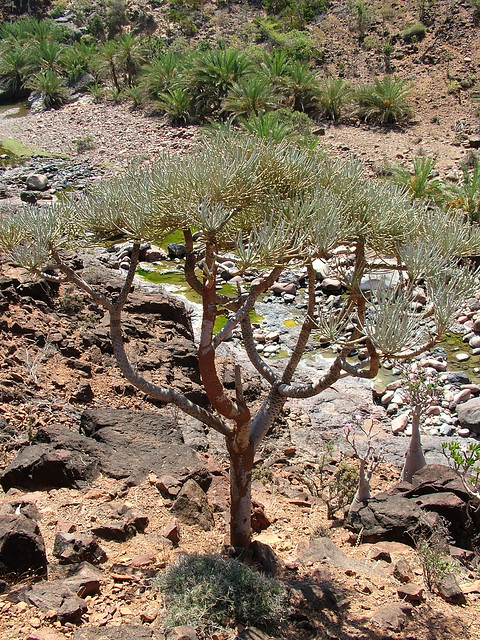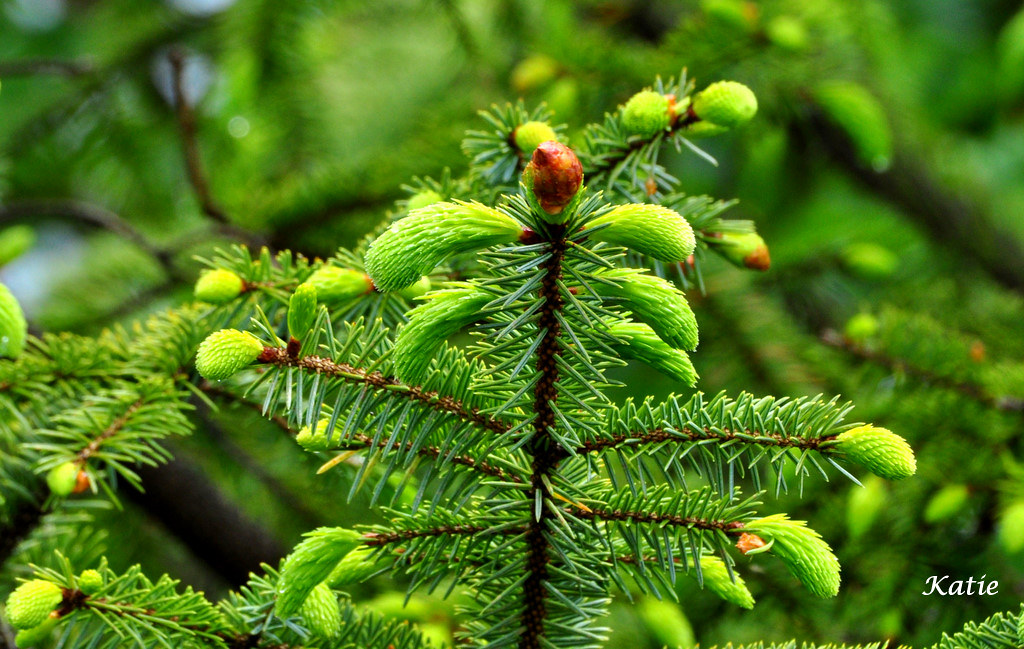
Best Trees For Rocky Soil And 3 Solutions for Gardens
Best trees for rocky soil include the Eastern Red Cedar (Juniperus virginiana), Ponderosa Pine (Pinus ponderosa), and Rocky Mountain Juniper (Juniperus scopulorum). These species are well-adapted to the challenging conditions of rocky terrain, providing stability and ecological benefits. Additionally, these trees are ideal choices for small front yard trees, as they require minimal maintenance and can enhance the aesthetic appeal of any yard. Their ability to thrive in rocky soil makes them a practical and attractive option for homeowners looking to add greenery to their outdoor spaces. With their ability to withstand harsh conditions, these trees offer a durable and long-lasting solution for landscaping in rocky environments.
The first tree on our list is the Eastern White Pine. This species is native to eastern North America and can grow up to 80 feet tall. The Eastern White Pine has a shallow root system that makes it ideal for rocky soil.
This tree also has a high tolerance for drought and cold temperatures. Another great tree for rocky soil is the Red Maple. The Red Maple is native to eastern North America and can reach heights of 60 feet tall. Like the Eastern White Pine, the Red Maple has a shallow root system that allows it to thrive in Rocky Soil conditions.
When it comes to finding the right trees for your rocky soil, there are a few things you need to take into consideration. First, what kind of climate do you live in? This will help determine which trees are best suited for your area.
Secondly, what is the pH level of your soil? You’ll want to make sure that the tree you choose can tolerate the acidic conditions of your soil. Finally, how much sun and shade does your location get?
Some trees need full sun while others prefer partial shade. With these factors in mind, here are some great tree options for Rocky Soil: If you live in a cold climate: If you live in a cold climate, consider planting trees such as junipers, pines, or spruces, as they are known for their ability to thrive in rocky soil and withstand harsh winter conditions. Fascinating watergrown trees like willows and poplars are also great options for rocky soil, as their root systems are adept at finding water sources deep within the soil. These trees not only add beauty to your landscape but also provide stability to the rocky terrain.
- Paper birch (Betula papyrifera): A beautiful tree with white bark that’s perfect for adding contrast to a rocky landscape. It prefers full sun and tolerates poor soils well.
- Mountain ash (Sorbus americana): A hardy tree that’s tolerant of cold climates and poor soils. It grows best in full sun or partial shade.
- Pine (Pinus spp.): An evergreen option that adds year-round interest to the landscape. Pines prefer well-drained soils but can tolerate rocky conditions if necessary. They grow best in full sun but can also tolerate partial shade.
Best Trees for Rocky Soil
Opt for hardy trees that thrive in rocky soil conditions. Consider Eastern Red Cedar tree (Juniperus virginiana), Ponderosa Pine (Pinus ponderosa), and Rocky Mountain Juniper (Juniperus scopulorum). These species adapt well, providing stability and resilience in challenging rocky terrains.
- Ponderosa Pine (Pinus ponderosa): Known for its resilience in rocky soil, Ponderosa Pine thrives in various climates. Its robust roots navigate challenging terrain, making it an excellent choice for stability and aesthetic appeal.
- Eastern Red Cedar (Juniperus virginiana): Resistant to harsh conditions, Eastern Red Cedar is well-suited for rocky soil. Its adaptable nature and evergreen foliage make it an attractive option for both ornamental and practical purposes.
- Rocky Mountain Juniper (Juniperus scopulorum): As the name suggests, this juniper species is naturally inclined to rocky landscapes. Its hardiness, coupled with drought tolerance, makes it a reliable choice for rocky soil environments.
- Colorado Blue Spruce (Picea pungens): Characterized by its striking blue-green hue, the Colorado Blue Spruce thrives in rocky soils. This ornamental evergreen adds visual appeal while demonstrating resilience in challenging terrain.
- Black Walnut (Juglans nigra): Black Walnut adapts well to rocky soil conditions and offers valuable hardwood. Beyond its aesthetic value, it provides shade and can contribute to the ecosystem, making it a functional choice for rocky landscapes.
Planting Techniques for Rocky Soil
Amend rocky soil with organic matter for improved fertility. Use terracing to control erosion on slopes. Employ proper tree planting techniques, including wide holes and mulching, to enhance root establishment and moisture retention.
- Soil Amendment with Organic Matter: Enhance rocky soil fertility by incorporating organic matter like compost or well-rotted manure. This improves soil structure, water retention, and nutrient availability, creating a more conducive environment for plant growth.
- Terracing for Erosion Control: Prevent soil erosion on rocky slopes through terracing. Constructing leveled steps with retaining walls helps retain soil, reducing erosion and providing a stable foundation for planting. This technique safeguards plants from runoff and promotes root establishment.
- Proper Tree Planting Techniques: When planting trees in rocky soil, dig wide, shallow holes. This encourages lateral root spread, helping trees anchor securely. Amend the backfill with organic matter and water thoroughly to ensure initial root hydration and establishment.
- Mulching for Moisture Retention: Apply a layer of mulch around the base of plants to conserve moisture. This is crucial in rocky soil, where water retention can be challenging. Mulching helps regulate soil temperature, reduce evaporation, and suppress weed growth, supporting overall plant health.
Timing to Plant Trees in Rocky Soil
Plant trees in rocky soil during early spring or fall. Spring allows for establishment before the summer heat, while fall provides optimal conditions for root growth. Aim for seasons with moderate temperatures to give trees the best chance to acclimate and thrive.
- Seasonal Considerations: Navigating rocky soil demands a seasonal dance. In spring, embrace moisture-conscious plant choices, leveraging the rocks’ moisture retention. As summer intensifies, master the art of water management. Drought-tolerant flora, strategically mulched, combat the rocky substrate’s heat-induced aridity.
- Weather Conditions: Weather shapes the rocky soil narrative. Heavy rain unveils drainage challenges, urging tree selections attuned to waterlogged resilience. In arid spells, prioritize species defying drought. From storms to heatwaves, acknowledge rocky soil’s response to extreme weather. Crafting a resilient landscape demands tree wisdom tailored to this dynamic interplay of soil and climate.
6 Solutions for Gardens With Rocky Soil
- Soil Amendment with Organic Matter: Improve rocky soil by adding organic matter like compost or well-rotted manure. This enhances fertility, drainage, and nutrient availability, creating a more hospitable environment for plants.
- Terracing for Erosion Control: Implement terracing on slopes to control erosion. This involves creating stepped levels with retaining walls, preventing soil runoff and providing stable planting surfaces.
- Raised Beds: Construct raised beds filled with quality soil to bypass rocky soil challenges. This provides a controlled environment for plants, allowing for better root development and improved growing conditions.
- Container Gardening: Embrace container gardening using well-draining soil. Containers offer flexibility in plant placement, enabling you to position them in areas less affected by rocky soil, promoting healthier plant growth.
- Selecting Hardy Plants: Choose plants adapted to rocky conditions. Native or resilient species such as sedums, yuccas, and ornamental grasses thrive in rocky soil, requiring minimal soil preparation and flourishing in challenging environments.
- Mulching for Moisture Retention: Apply a layer of mulch around plants to conserve moisture. This is crucial in rocky soil, where water retention can be difficult. Mulching helps regulate soil temperature, reduce evaporation, and support overall plant health.
What Trees Grow Best in Rocky Soil?
There are a number of trees that can thrive in rocky soil, provided that the rocks are not too large and there is enough organic matter present. Some trees that do well in this type of environment include:
- Pine trees
- Oak trees
- Fir trees
- Spruce trees
- Hemlock trees
Pine trees are especially adaptable to rocky soil, as their roots can spread out wide to anchor them in place. Oak trees also have deep and strong roots that allow them to grow in less-than-ideal conditions.
Fir and spruce tree species tend to do well in colder climates with harsher conditions, so they are often used as windbreaks or for erosion control on slopes. Hemlock trees have shallow root systems that make them vulnerable to being uprooted in strong winds, but they can still survive in rocky soils if they are given some protection from the elements.
Can You Plant a Tree in Rocky Soil?
Yes, you can plant a tree in rocky soil, but it may be more difficult to get the tree established. The roots of the tree will have a harder time penetrating the rock, so it is important to make sure that the hole for planting is big enough and deep enough. You may also want to add some organic matter to help the roots get started.
How Do You Plant Trees in Rocky Clay Soil?
When it comes to planting trees in rocky clay soil, there are a few things you need to take into consideration. First, make sure you choose a tree that is tolerant of the type of soil you have. Some trees, like maples and oaks, do not do well in clay soils.
Second, dig a hole that is twice as wide as the root ball of the tree and just as deep. This will give the roots plenty of room to spread out and anchor the tree securely. Finally, backfill the hole with a mixture of compost and topsoil. This will help improve drainage and provide nutrients for your tree.
Can Anything Grow in Rocky Soil?
Yes, many plants can grow in rocky soil. While some plants may have difficulty taking root in rocky soil, others are well-suited to this type of terrain. Plants that typically do well in rocky soil include:
- succulents
- cacti
- sedums
- thyme
- lavender
- Rosemary
These plants are able to tolerate poor drainage and infrequent watering, both of which are common problems in rocky soil. If you’re interested in growing other types of plants in rocky soil, it’s important to amend the soil with organic matter to improve drainage and water retention.
Best Fruit Trees for Rocky Soil
If you have rocky soil, you may think that your options for fruit trees are limited. However, there are actually several types of fruit trees that can thrive in this type of environment. Here are some of the best fruit trees for rocky soil:
- Apricot Trees – Apricot trees do well in both sandy and clay soils, but they seem to especially like Rocky Mountain soil. They need full sun and well-drained soil to produce a good crop of fruits.
- Cherry Trees – Cherry trees also prefer full sun and well-drained soils. They can tolerate a wide range of pH levels, making them ideal for Rocky Mountain soils which tend to be on the alkaline side.
- peach Trees – Peach trees require full sun and well-drained soils much like apricots and cherries. They are not as tolerant of alkaline soils as cherries though, so if your Rocky Mountain soil is very alkaline, you may want to consider another type of fruit tree.
- Pear Trees – Pear trees can tolerate a wide range of pH levels and they do quite well in infertile or even stony soils. In fact, pears were once grown commercially in areas with very poor-quality soils because they are such hearty plants!
Trees That Grow in Rocky Soil Texas
When it comes to trees that grow in rocky soil, Texas is home to some of the best. The Lone Star State is known for its diverse landscape and variety of trees, and that includes those that thrive in rocky conditions. Here are just a few of the many great options for trees that grow well in rocky soil in Texas.
One of the most popular choices for a tree that grows in rocky soil is the live oak. This stately tree is perfect for creating a dramatic focal point in any landscape. Live oaks are tough and drought-resistant, making them ideal for areas with less-than-ideal growing conditions.
They can also tolerate heavy clay soils, making them a good choice for sites where other trees might struggle. Another top choice for a tree that does well in rocky soil is the cedar elm. This hardy tree has an impressive tolerance for poor growing conditions, including compacted soils and drought stress.
Cedar elms are also resistant to Dutch elm disease, which makes them a great choice for areas where this destructive fungus is prevalent. For something a little different, consider the mountain laurel as an option for your rocky site. This native Texas shrub sports beautiful blooms in springtime, adding color and interest to any landscape.
Mountain laurels are adaptable plants that can tolerate a wide range of soils, including those that are heavy or compacted. They’re also quite drought-tolerant once they’re established, making them a low-maintenance option for dry sites.
Trees That Grow on Rocks
While most trees need plenty of soil in which to grow, there are a few species that have adapted to living on rocky cliffs and outcroppings. These hardy trees have shallow root systems that are able to grip onto the small amount of available soil and they also tend to be shorter and more compact than other trees. The following are some examples of trees that often grow on rocks:
Japanese Maple (Acer palmatum) Paperbark Maple (Acer griseum) Mountain Mahogany (Cercocarpus ledifolius) Creosote Bush (Larrea tridentata)
Best Evergreen for Rocky Soil
If you’re looking for an evergreen that can thrive in rocky soil, look no further than the American holly (Ilex opaca). This tough plant is not only tolerant of poor soils, but it’s also resistant to many common pests and diseases. American holly can grow up to 40 feet tall and wide, making it a perfect choice for privacy hedges or windbreaks.
It’s also a popular choice for holiday decorating, as its glossy green leaves and bright red berries add a festive touch to any home.
Vegetables That Grow Well in Rocky Soil
Vegetables That Grow Well in Rocky Soil Many people think that rocky soil is not good for growing vegetables. However, there are actually several vegetables that grow quite well in this type of soil.
Here are some of the best options:
- Carrots – Carrots are a root vegetable that does very well in rocky soil. They are relatively easy to grow and can tolerate a fair amount of drought.
- Beans – Beans are another vegetable that does well in rocky soil. They have deep roots that help them to find water and nutrients even in poor-quality soils.
- Cucumbers – Cucumbers also do well in rocky soils due to their long, sprawling roots. They require a lot of moisture so make sure to water them regularly if you live in a dry climate.
- Squash – Squash plants have large, fleshy leaves that help them to hold onto moisture even in dry soils. Their roots also go deep into the ground, making them ideal for rocky soils.
Planting Fruit Trees in Rocky Soil
Fruit trees are a wonderful addition to any landscape, and can provide fresh, delicious fruit for years to come. However, planting fruit trees in rocky soil can be a challenge. Here are a few tips to help you successfully plant fruit trees in rocky soil:
- Choose the right tree. Not all fruit trees do well in rocky soil, so it’s important to choose a variety that is known to be tolerant of less-than-ideal growing conditions. Some good options include crabapple, fig, quince, and pear.
- Amend the soil. Rocky soil is often low in nutrients and organic matter, so it’s important to amend it before planting your tree. Add compost or other organic matter to the hole where you’ll be planting the tree, and mix it well with the existing soil. This will help improve drainage and give your tree a better chance of thriving.
- Use a stake for support. Fruit trees planted in rocky soil often need some extra support to prevent them from tipping over as they grow taller. Drive a sturdy stake into the ground next to the planting hole before adding your tree.
Shrubs That Grow in Rocky Soil
When it comes to choosing plants for your landscape, it is important to consider the soil type. Rocky soil can be a challenge to work with, but there are certain shrubs that do well in this type of environment.
Here are a few of our favorites:
- Barberry – This shrub is perfect for adding some color to rocky soil. It is a low-maintenance plant that thrives in full sun or partial shade.
- Boxwood – If you are looking for an evergreen option, boxwood is a good choice. It tolerates clay and poor drainage, making it ideal for rocky soil.
- Juniper – Another tough shrub that does well in rocky conditions is juniper. It can handle full sun and windy locations, making it perfect for exposed hillsides or other challenging areas.
- Rosemary – Rosemary is not only a delicious herb, but it is also tolerant of poor soils and drought conditions. It prefers full sun and well-drained soils, making it a good choice for rocky areas.
- Sage – Sage is another herb that does well in rocky soil.
Can Apple Trees Grow in Rocky Soil
If you’re wondering whether apple trees can grow in rocky soil, the answer is yes! While apple trees do best in deep, loamy soils, they are surprisingly tolerant of less-than-ideal conditions. This means that if you have rocky soil on your property, you can still enjoy fresh apples from your own tree.
There are a few things to keep in mind if you’re growing an apple tree in rocky soil. First, make sure to choose a variety that is known to be hardy in your climate zone. Second, avoid planting the tree too deeply – the roots should only be buried about 6 inches below the surface.
Finally, water regularly and fertilize according to the manufacturer’s instructions. With a little bit of care, your apple tree will thrive in even the most challenging conditions!
Frequently Asked Questions:
Is rocky soil alkaline?
Rocky soil’s pH can vary, so it may be alkaline, neutral, or acidic depending on the specific composition of minerals in the rocks.
Why is rocky soil good?
Rocky soil can be beneficial because it provides good drainage, prevents waterlogging, and promotes aeration for plant roots.
What is a rock tree?
There’s no widely recognized term “rock tree.” It could be a colloquial or regional term or a misunderstanding. If you provide more context, I may be able to help clarify.
Conclusion
If you are looking to plant trees in rocky soil, there are a few things to keep in mind. First, it is important to choose a tree that is native to your area. This will help the tree to better adapt to the rocky conditions.
Additionally, you will want to make sure that you loosen the soil before planting and create a hole that is twice as wide as the root ball. With these tips in mind, you can be sure that your new tree will have a strong start in its rocky home.
Related Articles:
10 Best Small Evergreen Trees with Non Invasive Roots
 Dr Ahsanur Rahman, PHD
Dr Ahsanur Rahman, PHDPine Tree Rescue: Saving Pine Trees with Brown Needles
 Dr Ahsanur Rahman, PHD
Dr Ahsanur Rahman, PHD








